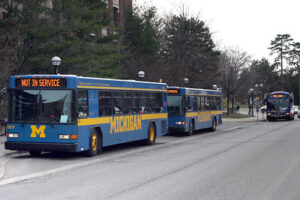A growing number of community colleges have announced that they will continue to deliver courses online through mid-2021. Online instruction makes sense for most classes. However, studies repeatedly show that a high proportion of community college students perform poorly in online classes. Further, online instruction has reduced minority student enrollment and significantly increased the drop-out rate for low income students.
Low-income students face challenges that students in higher income brackets don’t. Chief among these challenges are internet access, technology literacy and workspace. Some schools have expanded their Wi-Fi distribution patterns to include their parking lots. This allows some students to connect to the college network and attend classes without entering buildings. Unfortunately, this strategy depends on the student having access to private transportation. Students without reliable transportation may not be able to take advantage of their institution’s largely unused Wi-Fi network during the pandemic.
Other schools have made classroom space available by appointment. Students may reserve space in otherwise unused classrooms reconfigured to permit social distancing. These schools have established a screening procedure that students must complete before entering classroom space. Students bring their own computer equipment and attend classes or complete self-directed work.
Frontliners may not be prepared for online instruction
The Futures for Frontliners program may bring a large influx of students who lack the resources to effectively manage online education. While WCC is providing laptops to some qualified students who enroll for the Fall semester, the Frontliners will not arrive on campus until January 2021 at the earliest. To enable these students to make the most of their opportunity to advance, WCC must find creative ways to help students overcome the most immediate (and likely the most critical) challenges to learning.
This may include funding additional laptop distributions for incoming Frontliners. WCC may need to design and provide free access to self-paced remedial coursework that some students must complete before advancing to credit coursework. It may also include developing partnerships with local employers and/or Internet Service Providers to ensure that Frontliners can access capable Internet connections to complete coursework.
The WCC administration must also quickly determine the delivery status of Winter 2021 classes. This will help all students. It will also help WCC maximize the Futures for Frontliners program while also helping Frontliners maintain their eligibility.
Photo Credit: Rex Roof , via Flickr

























